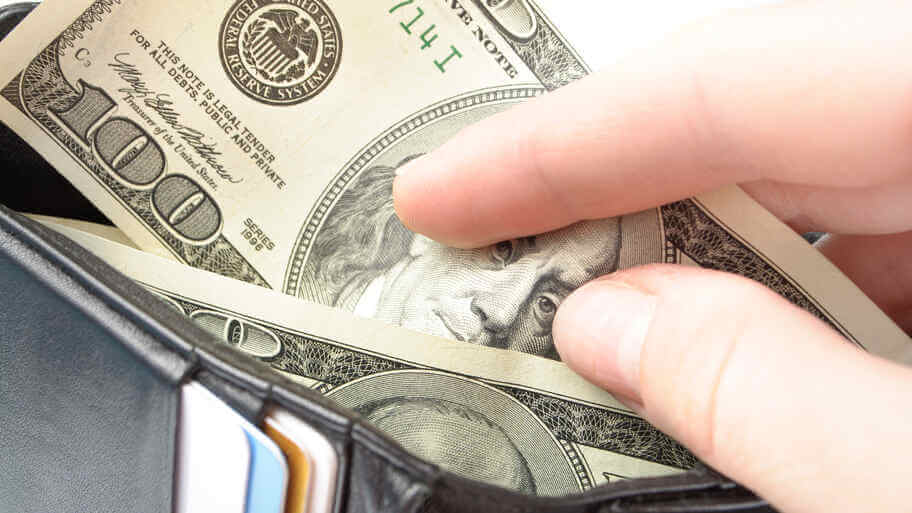You may be wondering: what is a payday loan? A payday loan is a short-term, high-interest loan that a lender extends based on the borrower’s income. A payday loan helps you with your financial emergencies before you get to the next paycheck.
With payday loans, no upfront fees or guarantor is required. As a result, these loans charge high annual percentage interest rates (APRs), mainly within the range of triple digits, with some going as high as 400% or more.
When applying for a payday loan, most lenders will request proof of income and an active bank account. And once you get the loan, expect it to be deducted from your next paycheck. A payday loan works for you if you have a bad or no credit record at all.
However, before applying for a payday loan, there’s a lot that you need to know. In this guide, we’ll offer a detailed look at payday loans, including how they work, how much they cost, and payday loan alternatives to consider. So, let’s dive in!
How Does a Payday Loan Work?
Payday loans have a simple application process and few qualification requirements compared to other loans.
Once you identify a suitable payday loan lender, you can apply for a loan either online or by visiting a brick-and-mortar office as long as you’re over 18 years old, have proof of income, and have an active bank account or credit union. Some lenders may also request a social security number.
The moment the lender receives your request, they’ll check your qualifications then issue you the loan. The cash can get delivered to you in 15 minutes or less. Typically, with payday loans, you get your funds within 24 hours, and you’ll be expected to settle this loan on your next payday, mainly within a range of two weeks to one month.
In exchange for the loan, the lender will request a signed check or permission to electronically withdraw money from your bank account to settle the loan on your next payday. Alternatively, if you apply for the loan through a brick-and-mortar office, the lender may give you an appointment to return when the loan is due.
If you fail to pay the loan on the first payday, it incurs a fee, and the cycle continues until you settle your dues. You can also decide to rollover your loan to a future date at a fee.
If you default on your loan, the lender may report you to a credit bureau or sell your loan to debt collection agencies. Defaulting on your payday loan negatively affects your credit score and credit history.
Generally, different states have different laws governing payday loans, including the maximum amount you can borrow, maximum loan term, and loan charges. You can check out your state’s regulations here.
What Is a Direct Payday Loan?
A direct payday loan is a loan you apply for directly through a primary payday lender which makes its own decisions about your loan. There’s no intermediary or broker involved here.
When you apply through a broker, they’ll provide various direct lenders with your information before selling your loan to the highest bidder. Brokers are middlemen who will connect you with the lender; they don’t offer the loan themselves.
Practically, payday loans with a direct lender, bad credit, no guarantor are less risky than when a broker is involved, as brokers share your financial information with many people, increasing the risk of fraud. Direct payday loans are also cheaper than those involving brokers.
How Much Does a Payday Loan Cost?
According to the Consumer Financial Protection Bureau, payday loans for bad credit with no guarantor and a direct lender cost about 15% for every borrowed amount. This translates into $15 for every $100 borrowed.
So, for a 2-week payday loan, the APR can be as high as 391%.
If you fail to repay the loan on the agreed day, the lender will charge you a late payment fee. If you continue defaulting, the fee will grow, and in the long run, you may have to pay more in terms of interest than the principal amount you borrowed. Some borrowers have ended up paying $520 after borrowing only $375.
Payday loans can be risky and can leave you trapped in a vicious cycle of debts that can be hard to get out of.
How Much Can I Borrow with a Payday Loan?
The amount you can borrow on payday loans varies depending on your state’s regulations and your financial standing. However, most lenders allow for between $300 to $1000 payday loans.
But always have it in mind that the higher the amount, the larger the dent it will leave on your paycheck.
Does Paying Back Payday Loans Build Credit?
A good number of payday loan lenders never report to credit bureaus, meaning, no matter how faithful you are at repaying the loans, they won’t help build your credit.
However, if you fail to repay the loan in time, the lender may report you to the credit bureaus. They can also sell your debt to collection agencies, which can hurt your credit score.
What Do I Need to Get a Payday Loan?
Payday loans are easy to get. All you need is proof of income, an ID proving you’re over 18 years, and an active bank account. Some lenders may require your social security number too.
What Happens If I Can’t Repay a Payday Loan?
Just like all other loans, failure to repay a payday loan will attract some penalties. Depending on the lender and your state’s regulations, you can be charged a non-sufficient fund fee or a late payment fee.
You may also decide to extend the due date through a rollover, but this will still attract some fees. Failure to pay the loan can also lead to bank fees, and the lender can also forward your case to a collection agency or report you to a credit bureau which lowers your credit score.
Payday Loan Alternatives to Consider
As you can see, payday loans aren’t really the best option to finance your emergencies; they can be expensive in the long run. So, it’s advisable to consider other loan options such as:
Interest-Free Cash Advance Apps
You can consider loans from interest-free cash advance apps like Dave, Chime, and Earnin. However, these apps have specific qualification requirements and caps on the amount you can borrow.
Personal Loans from Online Lenders or Credit Unions
You can get some fast cash from an online lender or a credit union in the form of personal loans. Personal loans don’t cost as much as payday loans. In fact, credit unions offer low-interest rates for bad credit personal loans, but you have to be a member before applying for a loan with them.
Borrow from Family and Friends
Another cheaper way to cater to your financial emergencies before your next paycheck is asking for help from family and friends. Just make sure you have a clear written agreement on your borrowing terms and how you’ll repay the funds.
Small Dollar Bank Loans
Another option is to approach your bank and ask if they offer small-dollar loans—some established banks offer small-dollar loans for emergency expenses.
Payday Loan Alternatives to Avoid
Even if you are hard-pressed for cash, there are some payday loan alternatives you should avoid. They include:
High-Interest, Long-Term Installment Loans
Some installment loans are enticing because their repayment periods can extend up to five years, and they don’t require good credit scores. However, such loans charge relatively high-interest rates that can end up costing you a lot in the long run.
Auto Title Loans
You should also avoid auto title loans. Although these are short-term loans, you’ll be required to hand over your vehicle title as collateral. If you fail to repay an auto title loan, you may lose your car.
Frequently Asked Questions
What Is a Payday Loan?
A payday loan is a short-term, high-cost loan for small amounts repaid on your next payday.
Can I Claim PPI on Payday Loans?
Yes. If you feel you were mis-sold a payday loan by a lender or that you’ve suffered debt due to unfair practices or sky-high interest rates, you can claim Payment Protection Insurance (PPI) on a payday loan.
How Do I Get a Payday Loan?
You need proof of income and an active bank account to get a payday loan. Some lenders will require your ID to prove you’re an adult and a social security number. You can apply online or through a storefront lender.
Why Are Payday Loans Bad?
Payday loans attract relatively high interest rates. If you default, the lender can report you to credit bureaus which lower your credit score. You can also end up paying more than you borrowed from accumulated interest and other charges if you continue defaulting.
Bottom Line
When you’re faced with a financial emergency, guaranteed payday loans for bad credit with no brokers may seem like a good option. However, these loans may be relatively expensive in the long run and may not be the best way to address your financial emergency.
So, you can turn to the payday loan alternatives discussed above to cater to your financial needs. And once you settle your emergency, work on building an emergency fund to handle unexpected financial needs in the future.
Featured Image: Megapixl








